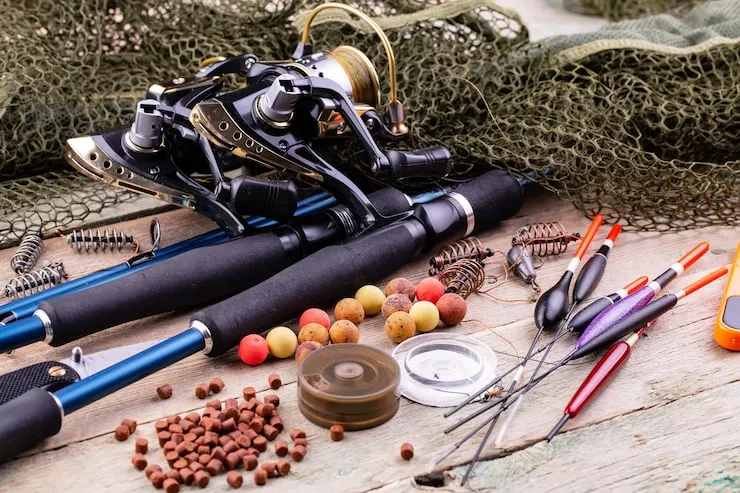 The Bonefish & Tarpon Trust (BTT), a premier conservation organization, has just launched a new wayfarers aimed at improving Florida’s water quality. The “Win Back Our Water” wayfarers will focus on three hair-trigger issues that severely impact Florida’s water quality.
The Bonefish & Tarpon Trust (BTT), a premier conservation organization, has just launched a new wayfarers aimed at improving Florida’s water quality. The “Win Back Our Water” wayfarers will focus on three hair-trigger issues that severely impact Florida’s water quality.
Those are:
- Prescription Drug Pollution: Recent studies reveal viperous pharmaceutical contamination in bonefish, endangering a $9.2 billion flats fishery industry and impacting 88,500 jobs.
- Glyphosate Pollution: Glyphosate, a pervasive weedkiller ingredient, is harming Florida’s fish and ecosystems, causing significant health issues in largemouth toned among other marine life, as shown in a recent study by ORCA.
- Outdated Water Infrastructure: Modernizing wastewater systems, protecting vital habitats, and written for projected sea level rise is crucial to preserving Florida’s water quality.
Bonefish & Tarpon Trust has launched a new campaign designed to raise awareness of Florida’s water quality issues. The campaign, “Win Back Our Water,” highlights three key issues that have been identified as harming Florida’s water quality: failing and/or outdated wastewater and stormwater infrastructure, pharmaceutical contaminants, and glyphosate pollution that can result from the use of herbicides.
“Win Back Our Water” aims to mobilize Floridians to take action to protect their state’s waterways and builds on BTT’s water quality priorities, most notably advocacy in support of Everglades restoration. The campaign emphasizes the importance of water quality not only for marine ecosystems but also for the many Floridians who depend on clean water for their livelihoods, recreation, and quality of life.
“Florida is at a crossroads” said Jim McDuffie, BTT President and CEO. “Failing and outdated wastewater and stormwater infrastructure, pharmaceutical contaminants, and glyphosate pollution threaten our coastal aquatic resources, economy, and way of life. The ‘Win Back Our Water’ campaign is a call to action to protect the state’s waterways by addressing issues that threaten water quality and, ultimately, our livelihoods.”
THE ISSUES
Outdated and/or Failing Wastewater Infrastructure – The “Win Back Our Water” campaign was launched in response to the myriad issues caused by Florida’s outdated and/or failing wastewater infrastructure. Florida’s wastewater and stormwater infrastructure must continue to be modernized, septic systems connected to sewer, and altered freshwater flows must be addressed. The recommendations of the Governor’s Blue-Green Algae Task Force must be accelerated, fully implemented, expanded, and funded; and habitats essential to fisheries must be identified and prioritized for protection and restoration, accounting for projected sea level rise.
Prescription Drug Pollution – The campaign specifically addresses a major impact of outdated wastewater infrastructure: the presence of pharmaceutical contaminants in Florida sportfish. Recent Florida International University (FIU) studies funded by BTT revealed alarming levels of pharmaceutical drugs in the blood and other tissues of bonefish in Biscayne Bay and the Florida Keys, and in redfish throughout Florida waters. These contaminants pose a significant threat to recreational fisheries, which have an annual economic impact of $13.9 billion and directly supports over 120,000 jobs. A three-year study by FIU and BTT found an average of seven pharmaceuticals per bonefish and 17 pharmaceuticals in a single fish. The subsequent redfish studyhad similar results. The impacts of prescription contaminants can affect all aspects of fish behavior, including reproduction and survival. BTT advocated for the recently created Florida Innovative Wastewater Technology Grant Program to assist utilities in upgrading their treatment systems to address pharmaceuticals.
Glyphosate Pollution – Another contaminant impacting Florida’s fisheries is glyphosate, the main effective ingredient in many weedkillers. Glyphosate is used extensively throughout Florida and other states for everything from agriculture to aquatic weed control. A recent study by the nonprofit Ocean Research and Conservations Association (ORCA) found glyphosate in every fish sampled from the Indian River Lagoon. Glyphosate is impacting the Indian River Lagoon ecosystem and is most likely present in Florida’s other estuaries and freshwater lakes and rivers. Previous research showed that glyphosate caused significant health issues for largemouth bass, and similar results are expected for marine fishes. BTT continues to advocate for meaningful reductions in the application of weedkillers and for the development of innovative methods for aquatic plant control.
The launch of the “Win Back Our Water” campaign follows ongoing harmful algal blooms, poor water quality, seagrass loss, fish kills, and contaminants such as pharmaceuticals in fish and other marine organisms that show that much more action is needed, especially considering the ways that a changing climate aggravates these problems. Florida must continue to make immediate and significant policy changes and long-term investments in water quality and habitat conservation to halt the accelerating decline and give ecosystems a chance at recovery, and Bonefish & Tarpon Trust is spearheading a coordinated effort to accomplish just that.















